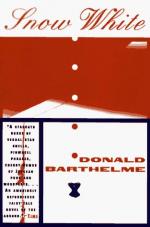|
This section contains 5,168 words (approx. 18 pages at 300 words per page) |

|
SOURCE: Dickstein, Morris. “Fiction at the Crossroads.” In Critical Essays on Donald Barthelme, edited by Richard F. Patteson, pp. 59-69. New York: G. K. Hall & Co., 1992.
In the following essay, originally published in 1977, Dickstein regards Barthelme's City Life as the apotheosis of fictional experimentation and ingenuity and compares it to other innovative fictional works of the late 1960s.
When two publishers in 1962 brought out overlapping collections of the work of the Argentine writer Jorge Luis Borges it was an important event for American readers, but few could have anticipated the impact it would have on our fiction. His work hardly fit into any traditional niche. The short story, even in the hands of Chekhov and Joyce, had always been the most conservative of all literary genres, the most tied to nineteenth-century conventions of incident and character, the least given to formal or technical innovation. Borges' stories hardly seemed...
|
This section contains 5,168 words (approx. 18 pages at 300 words per page) |

|


